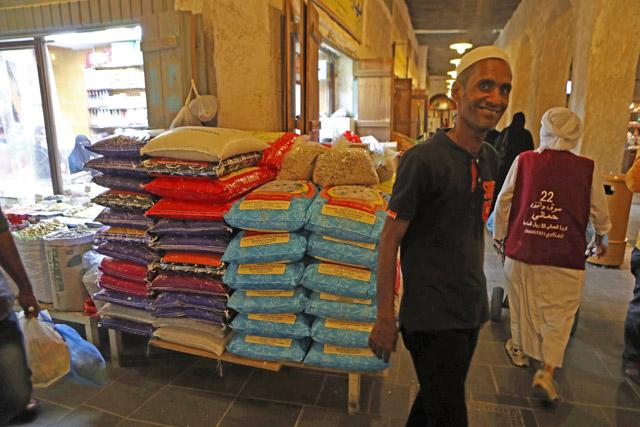You are here
‘Bachelor ban’ in Qatar tests relations with migrant workers
By Reuters - May 17,2016 - Last updated at May 17,2016
AL KHOR, QATAR — As Nami Hader, a 30-year-old gardener from Nepal, approached the entrance to a park outside Qatar’s second city Al Khor one day last month, a security guard blocked his way.
“No bachelors,” the guard said.
The newly-renovated park — its boating lake, miniature golf course and neatly manicured lawns — was off-limits to men unaccompanied by women or children, the guard said. “It’s for families only.”
So-called “bachelor bans” that bar lone men from entering malls and parks on certain days of the week and from living in residential neighbourhoods are a common, often loosely-enforced, practice in the conservative Muslim Gulf.
Local authorities say the measure, enforced by businesses and municipalities, allows families and women who live in crowded and male-dominated cities space to enjoy public facilities.
But a recent ramping up of family-only rules in Qatar is excluding the country’s vast South Asian workforce, mostly young men who live as temporary residents away from their families, and cutting them off from society, rights groups say.
“I wanted to visit the park but I was turned away,” said Hader. “This says to me I am not welcome.”
The small Gulf Arab state’s reliance on foreign workers to power a $200-billion construction boom ahead of the 2022 World Cup has drawn criticism from labour unions who say migrants are exploited and forced to live in squalid conditions.
A government official said Qatar was seeking to improve conditions for migrant workers.
The tremendous influx of workers has also raised concern among Qataris — outnumbered by foreigners in their own country — that rapid demographic change threatens their way of life.
Qatar’s population stands at 2.6 million, 75 per cent of whom are male, according to the country’s ministry of planning.
No one knows exactly how many Qatari citizens there are as the government refuses to release a total but estimates say there are between 200,000 to 250,000.
Unsettled by development pace
“Bachelor workers are eroding the privacy and comfort of families,” Rashed Al Fadeh, a Qatari journalist, wrote in a column for local Arabic-language daily Al Sharq last year, saying workers overrunning neighbourhoods was damaging Qatar’s social fabric.
“Some Qatari families have abandoned habits inherent to them and no longer open their doors to visitors. This hurts us. We are accustomed to being generous towards outsiders... but now the purity of our lives, sleep and rest is disturbed.”
Related Articles
DOHA — When 31-year-old Ali Al Mohanadi heard Saudi Arabia, the United Arab Emirates and other nations were cutting ties and severing all tr
DOHA — A worker has died in a “work-related fatality” at the site of a 2022 World Cup stadium in Qatar, the country’s world cup organising b
NEW DELHI —Qatar has reassured India that labour reforms will improve the conditions of more than half a million Indian migrants, after Prim



















